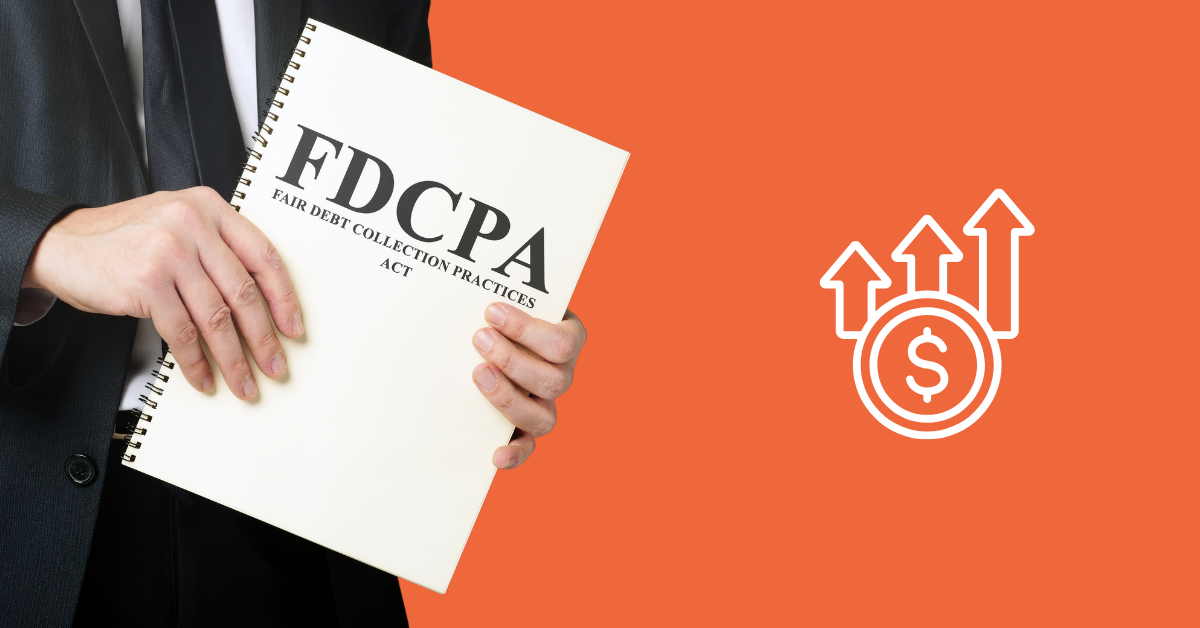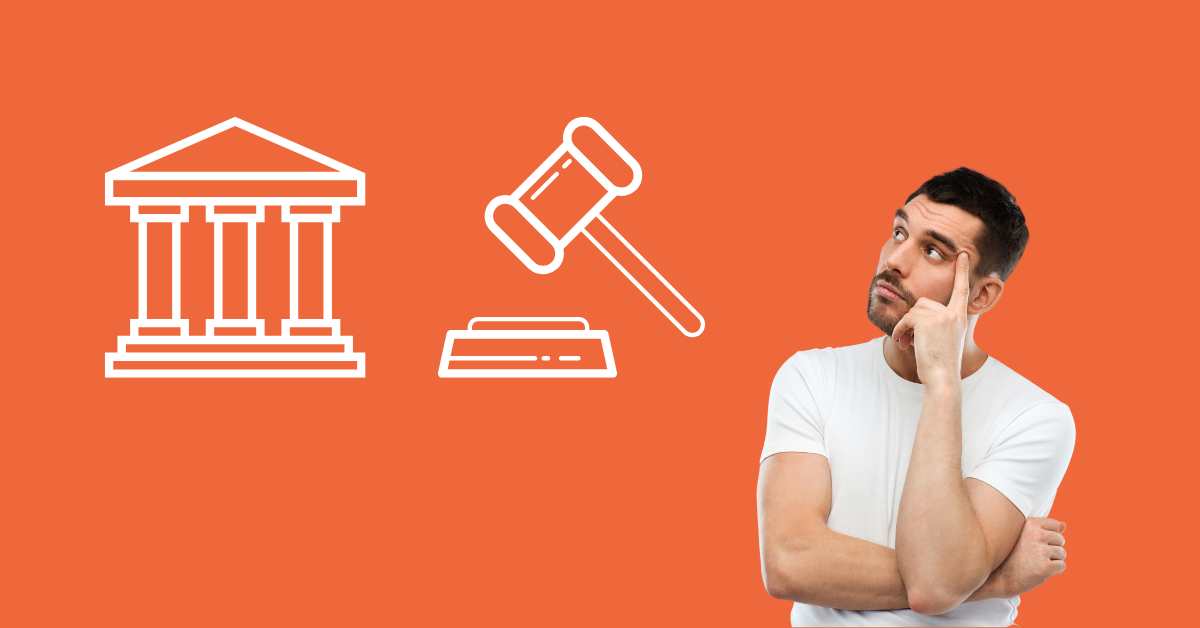The Fair Debt Collection Practices Act (FDCPA) are the federal collection agency laws that protects consumers from abusive, deceptive, and unfair debt collection practices.
Enacted in 1977, the FDCPA establishes specific rules and regulations that a debt collection agency must follow when attempting to collect debts from consumers. This article provides a comprehensive overview of the FDCPA, including its definition, key provisions, and the debt collection rights it affords to consumers.
Whether you're a consumer facing debt collection issues or a debt collector looking to comply with debt collector laws, this guide will help you understand the FDCPA and your rights and responsibilities under it.
What is FDCPA?
FDCPA stands for The Fair Debt Collection Practices Act, which is a federal law that protects consumers from abusive, deceptive, and unfair debt collection practices. Enacted in 1977, the FDCPA establishes specific rules and regulations that debt collectors must follow when attempting to collect debts from consumers.
FDCPA meaning
The The Fair Debt Collection Practices Act has a number of provisions that impact commercial debt collection laws, including:
- Prohibits debt collectors from engaging in abusive, deceptive, and unfair debt collection practices. This includes, but is not limited to:
- Calling consumers at unreasonable times or places
- Using abusive or profane language during collection of debt
- Threatening consumers with violence or arrest
- Misrepresenting the amount of debt owed
- Contacting consumers after they have notified the debt collection business that they do not want to be contacted
- Requires debt collectors to provide consumers with certain information about their debts, including:
- The name of the creditor
- The amount of debt owed
- The date the debt was incurred
- The name and address of the debt collector
- Limits the number of times debt collectors can contact consumers.
- Provides consumers with the right to dispute debts.
- Prohibits debt collectors from taking certain actions, such as:
- Suing consumers without first obtaining a judgment
- Garnishing wages without a court order
- Seizing property without a court order
Debt collection laws: What is covered under the fair debt collection practices act?
The FDCPA covers a wide range of debt collection activities and provides consumers with specific rights and protections.
Key areas covered by the FDCPA:
- Communication and conduct:
- Fair and respectful communication: Debt collectors must communicate with consumers in a professional and respectful manner, avoiding the use of obscene or abusive language, harassment, threats, or intimidation.
- Time and place restrictions: Debt collectors cannot contact consumers at inconvenient times, typically before 8 a.m. or after 9 p.m., unless the consumer agrees. They also cannot contact consumers at their place of work if the employer prohibits such communication.
- Third-Party communication: Debt collectors generally cannot discuss the debt with anyone other than the consumer, their spouse, attorney, or parent (if the consumer is a minor), unless they have permission or are required by law.
- False or misleading representations: Debt collectors cannot use false, deceptive, or misleading statements or practices to collect a debt. This includes misrepresenting the amount owed, the legal status of the debt, or the consequences of nonpayment.
- Disclosure and validation of debts:
- Initial communication: Within five days of the initial communication, debt collectors must provide consumers with a written "validation notice," such as a debt collection letter, that includes the amount of the debt, the name of the creditor, and information about the consumer's rights to dispute the debt and request verification.
- Debt verification: If a consumer disputes a debt in writing within 30 days of receiving the validation notice, the debt collector must stop collection activities until they provide verification of the debt.
- Prohibited collection practices:
- Harassment and abuse: Debt collectors cannot engage in conduct that harasses, oppresses, or abuses any person in connection with the collection of a debt.
- Unfair practices: Debt collectors cannot use unfair or unconscionable means to collect a debt. This includes collecting any amount not authorized by the contract or law, depositing a postdated check prematurely, or threatening to take action that they cannot legally take or do not intend to take, or responding misleadingly when asked “what is a write off?”
- Legal action and wage garnishment: Debt collectors cannot sue or garnish wages without first obtaining a judgment against the consumer in court.
- Consumer rights and remedies:
- Dispute the debt: Consumers have the right to dispute a debt if they believe it is inaccurate or invalid. They can do this by sending a written dispute letter to the debt collector within 30 days of receiving the validation notice.
- Sue for damages: If a debt collector violates the FDCPA, consumers can sue them in state or federal court for damages, including actual damages, statutory damages up to $1,000, and attorney's fees and costs.
- Cease communication: Consumers can send a written request to the debt collector to stop contacting them. However, this does not erase the debt or prevent the debt collector from taking legal action.
Enforcement and Compliance:
The FDCPA is enforced by the Federal Trade Commission (FTC), the Consumer Financial Protection Bureau (CFPB), and state attorneys general. Consumers can file complaints with these agencies if they believe a debt collector has violated the law.
Key point: The FDCPA applies to consumer debts, which are debts incurred for personal, family, or household purposes. It does not apply to business debts.
What happens in case of FDCPA violations?
Violations of the Fair Debt Collection Practices Act (FDCPA) can result in serious consequences for debt collectors, including:
- Government enforcement actions: The Federal Trade Commission (FTC) and the Consumer Financial Protection Bureau (CFPB) have the authority to investigate and enforce the FDCPA. They can bring lawsuits dealing with FDCPA violation against debt collectors who violate the law, seeking injunctions, civil penalties, and other remedies.
- Private lawsuits: Consumers who have been harmed by FDCPA violations can file lawsuits against debt collectors in state or federal court. They can seek damages, including actual damages (such as out-of-pocket expenses and emotional distress), statutory damages (up to $1,000 per violation), and attorney's fees and costs.
- Reputational damage: Debt collectors who violate the FDCPA can damage their reputations and lose customers. Consumers may be less likely to do business with a debt collector that has a history of FDCPA violations.
- License revocation: In some cases, state regulators may revoke the licenses of debt collectors who repeatedly violate the FDCPA. This can put debt collectors out of business.
To avoid these consequences, debt collectors must comply with the FDCPA and treat consumers fairly and respectfully.
What do the FDCPA laws prevent debt collectors from doing? 5 examples of debt collection abuse
The FDCPA laws prevent debt collectors from engaging in abusive, deceptive, and unfair debt collection practices. Here are five examples of debt collection abuse prohibited by the FDCPA:
- Harassment and intimidation: Debt collectors cannot harass, oppress, or abuse consumers in any way, including by using profane or obscene language, threatening violence or arrest, or contacting consumers at unreasonable times or places.
- False or misleading statements: Debt collectors cannot make false or misleading statements about the amount of debt owed, the legal status of the delinquent debt, the consequences of nonpayment, or any other deceptive practices.
- Unfair practices: A debt collection company cannot use unfair or unconscionable means to collect an alleged debt, such as collecting any amount not authorized by the contract or law, depositing a postdated check prematurely, or threatening to take action that they cannot legally take or do not intend to take.
- Contacting consumers after they have notified the debt collector that they do not want to be contacted: Debt collectors cannot contact consumers after they have notified the debt collector in writing that they do not want to be contacted.
- Sue or garnish wages without first obtaining a judgment: Debt collectors cannot sue consumers or garnish their wages without first obtaining a judgment against the consumer in court.
Federal consumer debt protection laws: Key takeaways
- The Fair Debt Collection Practices Act (FDCPA) safeguards consumers from abusive, unfair, and deceptive debt collection practices.
- Debt collectors must provide consumers with specific information about their debts, including the amount owed, the name of the creditor, and the date the debt was incurred.
- Consumers have the right to dispute debts and request verification of the debt from the debt collector.
- Debt collectors are prohibited from engaging in certain actions, such as calling consumers at unreasonable times, using profane or abusive language, or threatening consumers with violence or arrest.
- Consumers can file complaints with the Federal Trade Commission (FTC), the Consumer Financial Protection Bureau (CFPB), or their state attorney general if they believe a debt collector has violated the FDCPA.
FAQs
What does FDCPA stand for?
FDCPA stands for the Fair Debt Collection Practices Act. It is a federal law that protects consumers from abusive, deceptive, and unfair debt collection practices.
The FDCPA was enacted in 1977 and is enforced by the Federal Trade Commission (FTC), the Consumer Financial Protection Bureau (CFPB), and state attorneys general.
The FDCPA covers a wide range of debt collection activities and provides consumers with specific rights and protections.
What is not covered under the fair debt collection act?
The Fair Debt Collection Practices Act (FDCPA) does not cover the following:
- Business debts
- Debts owed to government agencies
- Student loans
- Mortgages
- Credit card debt (except in certain circumstances)
- Debts secured by collateral
Where should fair debt collection practices act violations be reported?
Fair debt collection practices act violations should be reported to the following agencies:
- The Federal Trade Commission (FTC)
- The Consumer Financial Protection Bureau (CFPB)
- State attorneys general
What is the FDCPA statute of limitations?
The Fair Debt Collection Practices Act statute of limitations is one year from the date of the violation.
What is the 777 rule with debt collectors?
The Consumer Financial Protection Bureau (CFPB) established the 777 rule in 2021. This rule limits the frequency with which a third party debt collector can contact consumers by phone about a specific debt.
Specifically, third party debt collectors are prohibited from making more than seven calls within a seven day period and from calling within seven days of having had a telephone conversation with the consumer about the debt.
However, this rule applies to each debt individually. If a consumer has multiple debts in collection, the collection agency can make up to seven calls per week for each debt, but must still adhere to the seven-day waiting period after speaking to th




